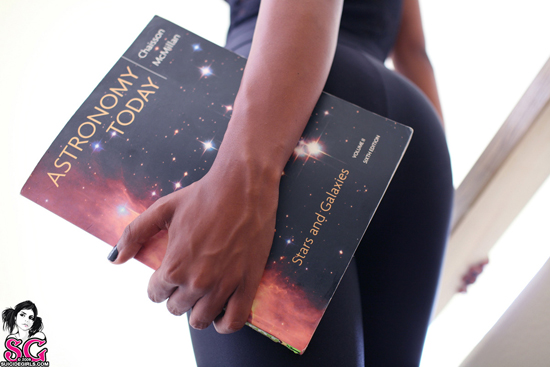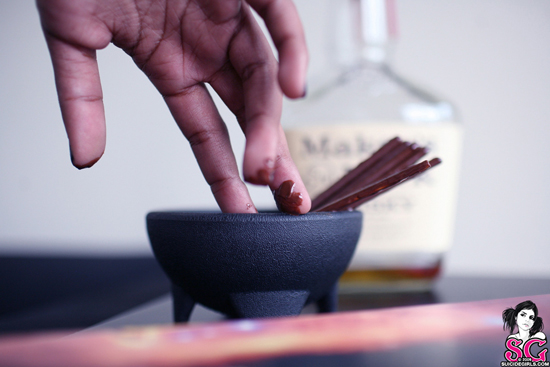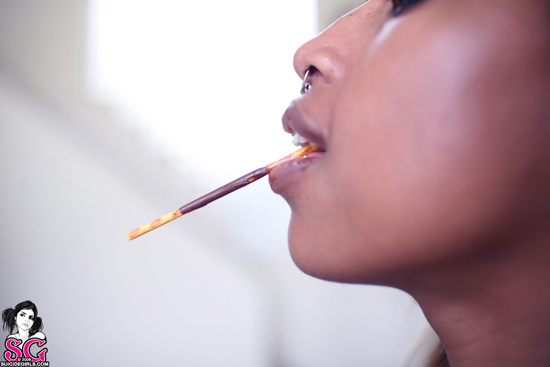by Aaron Colter
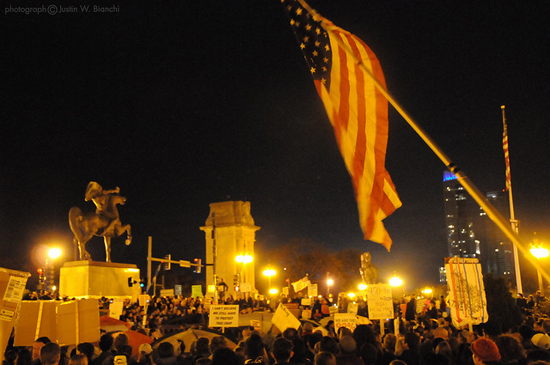
“Occupy was impossible the day before it happened; the day after it was so obviously inevitable.” – Bill Ayers
As a co-founding radical member of the Weather Underground, Bill Ayers is still a polarizing figure in America today, even though he’s dedicated most of his life to changing the way teachers approach childhood development and learning. In advance of his appearance at Portland, Oregon’s Stumptown Comics Festival this weekend, Ayers was kind enough to answer some questions about reforming public education, President Obama’s first term, and the future of the Occupy movement.
Question: Your connection to now President Obama was greatly over-hyped during his campaign, but as a Chicagoan, a citizen, and a leftist figure in America, how satisfied are you with his first term?
Bill Ayers: During the campaign, Senator Obama said consistently that he was a moderate, pragmatic politician. The right built up a story that he was a secret socialist who palled around with bad people; liberals said, “I think he’s winking in my direction.” The reality is that the president is surely a smart, caring, kind person who is politically exactly who he said he is: moderate, pragmatic, politician, leader of one of the two great war parties.
He also was asked during the primary fight, “Who would Martin Luther King support?” His answer: “King would be in the streets, building a movement for justice.” Exactly right. Rather than wring our hands as we stare helplessly at the sites of power we have no access to — the Congress, the White House, and the Pentagon — we might get busy organizing in the communities, schools and work-places, places of power we have full access to, and take it to the streets.
Q: Many liberals seems to be unhappy with how the President has handled military action in the Middle East, especially in regards to drone attacks, and also the President’s signing of the NDAA, the controversy over Wikileaks, the detention of Bradley Manning, etc. – how do you feel about those issues and what would you say to those on the left who might not want to vote for Obama this fall?
BA: Voting cannot be the be-all and end-all of participation. And in an electoral system so awash in money, so corrupted by cash, we would be foolish to rely on an election to answer our deepest needs and dreams. Organize, build a movement, and come to Chicago in May to say No to NATO!
Q: Speaking of dissatisfaction, the Occupy Wall Street movement is potentially poised to return in force this summer, do you think the movement has had a positive effect in helping change economic inequality?
BA: Occupy is an invitation and an opening, not a point of arrival, and it’s already won in important ways: the 1% is exposed, the frame is changed, and the 99% are getting mobilized against war and planetary destruction, for peace and simple fairness.
Q: What advice would you give to protestors today? Are there tactics you see as being effective? And conversely, are there things Occupy protestors are doing that you see as having a negative effect?
BA: I’m no tactician. But fundamental radical change is what we need now more than ever — we need to change ourselves, we need to remake the world. We need a revolution in values — against militarism, racism, materialism, consumerism — and a revolution in fact for peace and sharing the socially produced wealth and saving the planet. There is no single answer, but refusal to go along with exploitation, oppression, conquest and greed will open a path. Public space is created whenever people come together authentically and freely to name themselves in opposition to injustice. Those spaces can surely turn into their opposites, but let’s resist. Symbolic actions can play an educational role, and the educational value of any symbolic action — and this can include demonstrations and sit-ins and strikes and more — is impossible to fully assess in advance. Meanings are forever contested and never settled. We do the best we can, and then we reassess and try again. But our goals must be pedagogical, and our rethinking hinges on two questions: Did we learn? Did we teach?
Q: Do you see property destruction performed by the so-called “Black Bloc” today, or in the 1990s by the ELF, as having any merit? What would you encourage young radicals to do today?
BA: Sometimes, it depends. I urge activists to become more radical (go to the root of things), study, learn, organize, talk to strangers, mobilize, display your ethical aspirations publicly. On the important issues of the last two centuries, political radicals from Jane Addams and Emma Goldman, John Brown and Harriet Tubman, to Eugene Debs and WEB DuBois have gotten it right. The legacy continues with the work of Ella Baker and Septima Clark, Martin Luther King Jr. and Malcolm X 40 years ago, and on up to today. Of course as Ella Baker said, “Martin didn’t create the Movement, the Movement created Martin,” and it’s true; for every remembered leader there were hundreds, thousands putting their shoulders on history’s wheel. We might reflect then on the people as they make and remake history.
Everyone should wake up every day and pay attention/ be astonished/ act/ doubt, and repeat for a lifetime. We begin by recognizing that every human being, no matter who, is a gooey biological wonder, pulsing with the breath and beat of life itself, eating, sleeping, pissing and shitting, prodded by sexual urges, evolved and evolving, shaped by genetics, twisted and gnarled and hammered by the unique experiences of living. Every human being also has a unique and complex set of circumstances that makes his or her life understandable and sensible, bearable or unbearable. This recognition asks us to reject any action that treats anyone as an object, any gesture that thingifies human beings. It demands that we embrace the humanity of everyone, that we take their side.
Our country is first of all an extremely diverse immigrant society, with fantastic resources and accomplishments, but it also contains a redoubtable set of internal inequities and external interventions that cannot be ignored. We are faced with the enduring stain of racism and the ever more elusive and intractable barriers to racial justice, the rapidly widening gulf between rich and poor, and the enthronement of greed. We are faced as well with aggressive economic and military adventures abroad, the macho posturing of men bonding in groups and enacting a kind of theatrical but no less real militarism, the violence of conquest and occupation from the Middle East and Central Asia to South America.
Encountering these facts thrusts us into the realm of human agency and choice, the battlefield of social action and change, where we come face to face with some stubborn questions: Can we, perhaps, stop the suffering? Can we alleviate at least some of the pain? Can we repair any of the loss? There are deeper considerations: Can society be changed at all? Is it remotely possible—not inevitable, certainly, perhaps not even likely—for people to come together freely, to imagine a more just and peaceful social order, to join hands and organize for something better, and to win? Can we do anything?
If a fairer, saner and more just society is both desirable and possible, if some of us can join one another to imagine and build a public space for the enactment of democratic dreams, our field opens slightly. Occupy! There would still be much to be done, for nothing would be entirely settled. We would still need to find ways to stir ourselves from passivity, cynicism, and despair, to reach beyond the superficial barriers that wall us off from one another, to resist the flattening social evils like institutionalized racism, to shake off the anesthetizing impact of the authoritative, official voices that dominate so much of our space, to release our imaginations and act on behalf of what the known demands, linking our conduct firmly to our consciousness.
Q: Protestors around the country are preparing for marches and actions on May 1st as part of a General Strike. How useful do you think will be?
BA: Who can predict? Not me. We do our best, we act, and then we rethink and try again. Maybe we can learn from it. Occupy was impossible the day before it happened; the day after it was so obviously inevitable.
Q: There have been some Occupy protests aligned with trying to save schools that are set to close down due to budgetary constraints, and we’ve seen people try to occupy those schools to stop them from being shut down. Do you think that’s an effective tactic? What do you think people can do that would be more likely to bring about change?
BA: Keep trying, keep thinking.
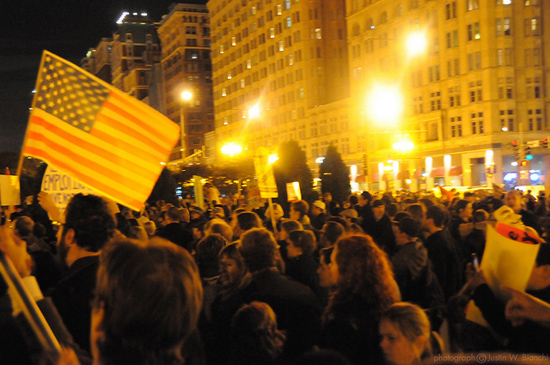
Q: May will also mark the beginning of the occupation of Chicago to protest the NATO summit, now that the G8 has been moved to Camp David. First, do you think the fact that the G8 was moved can be seen as victory for Occupy protestors? And second, how do you think the city of Chicago will handle the situation?
BA: Yes, indeed. G8’s withdrawal was our victory. Now come to Chicago May 22, please and thank you, and help us drive NATO out as well.
As far as the city goes, a 1984-style national security dragnet is set to descend on Chicago in an attempt to lock the city down during the NATO summit. Mayor Rahm Emanuel has made it clear that he will happily act as the host of NATO — and that the 99 percent are not welcome. Emanuel is concocting a culture of fear, suggesting that it is the growing human resistance to NATO that represents danger, outside agitators, violence and invasion.
Universities and schools are being urged to close early in May; communities of color are told that NATO’s work is not their concern; merchants are preparing for assault from the dissenting masses. But NATO, and their G8 friends in hiding, are the real masters of war; it is they who are the greatest purveyors of violence on this earth.
It is unsurprising, then, that Emanuel has funding to further arm and mobilize the police and militarize the city. The Mayor has announced plans to contain and suppress demonstrators. He has pushed through legislation that restricts and criminalizes free speech and assembly and requires costly insurance for public demonstrations. He is issuing a steady stream of pronouncements about a fabricated Chicago, which he says is under siege from ominous and dangerous outside forces.
The mayor, not the popular resistance, is creating conditions for a police riot in Chicago against people exercising their right to peaceful dissent. Emanuel can still change course, and he should. So far, he has chosen to frame the coming convergence of protesters and the powerful solely in military and security terms.
Chicago is big enough for all — it is after all a nuclear-free and cease-fire city, cradle of the Haymarket martyrs and the 8-hour day, labor and peace actions, vast civil rights and immigration rights manifestations, home of Ida B. Wells Barnett, Jane Addams, Richard Wright, Gwendolyn Brooks, and Studs Terkel. Chicago is a vast public space with historic parks, monuments, neighborhoods and streets for popular mobilizations — Chicago belongs to all of us. We underline the right — the moral duty — to dissent and demonstrate, to resist and to be heard, to participatory (not billionaire paid-for) democracy.
The festival of NATO counter-summits, protests, and family-friendly permitted marches planned for May are the next chapter. Organizers and supporters will use humor and music, art and play, civil disobedience and imagination to voice their rejection of permanent imperial wars and the many forms of violence that arise from the same paradigm: discrimination and hate based on race, gender and ethnicity; epic income disparity; mass incarceration; inadequate resources for education, health care and opportunities for meaningful work.
Music, dance, teach-ins and peoples’ tribunals will overflow the parks and theatres. The protests are in the spirit of the Arab Spring, Occupy and the Madison labor struggle, drawing equal inspiration from the work of many others: the Pelican Bay hunger strikers, teachers and nurses, the undocumented DREAMers, returning veterans against the wars, women insisting on reproductive dignity, people resisting foreclosures/take-back-the-landers, those working for LGBTQ equality and more. People from everywhere will bring their spirits and their creativity, pitch their tents and stake their claims. Join us!
Q: Congress passed a recent bill that would make it a felony for protestors to disrupt events where the secret service was present. Do you think fears of a felony charge if protesting at the NATO summit are warranted? And if so, what do you think the proper response should be from protestors?
BA: Break the law.
Q: Politics in Chicago are seen as being inherently corrupt by many people in this country. Do you think that’s a fair assessment of how the city is run? Is there a structure in Chicago politics, for example the system of wards and aldermen, that makes changing policy and accountability more complicated than other cities?
BA: I don’t know that it’s any more or less complicated, but I do know it’s corrupt to the bone, that we should abolish the mayor’s office and the city council and build popular democracy — the model might be ancient Greece for the hundred years, or the Wobbly encampments in Nevada a hundred years ago, or Occupy!
Q: Switching gears a bit, what do you see as the biggest obstacle facing education reform today?
BA: The biggest obstacle facing education reform today is the accepted frame or the established terms of the discussion — the dull but insistent dogma of fashionable common sense. Whenever any two-bit politician gets to a microphone and says, “First we need to get the lazy, incompetent teachers out of the classroom,” he has not only framed the debate, he’s won. What can I say? “No, please leave the lazy teacher there for my grand-daughter!” If I get to the microphone first, I might say, “Every kid deserves a thoughtful, intellectually grounded, morally committed, caring, compassionate, well-rested and well-paid teacher in the classroom.” That’s a re-framing, and I win this one.
A flattering portrait of Secretary of Education Arne Duncan [“Class Warrior,” the New Yorker, February 1, 2010] perfectly reflects the dominant frame in today’s school reform battles: “there are, roughly speaking, two major camps,” writes the essayist. The first he calls “the free-market reformers,” the second, “the liberal traditionalists.” This unfortunate caricature is dead wrong, and it leaves out a huge range of approaches and actors, notably it omits those who argue, as John Dewey did, that in a democracy, whatever the wisest and most privileged parents want for their children must serve as a minimum standard for what the community wants for all of its children. Arne Duncan as well as the Obama children and Chicago Mayor Rahm Emanuel’s kids all attended the University of Chicago Laboratory Schools, where they had small classes, abundant resources, and opportunities to experiment and explore, ask questions and pursue answers to the far limits. Oh, and a respected and unionized teacher corps as well! Good enough for secretaries, mayors, and presidents, good enough for the kids in public schools everywhere. Any other ideal for our schools, in the words of Dewey, “is narrow and unlovely; acted upon it destroys our democracy.”
In schools focused on the needs and dreams of the broad community, we would be inspired by fundamental principles of democracy, including a common faith in the incalculable value of every human being. We would rally around the idea that the full development of each is the condition for the fullest development of all, and conversely that the fullest development of all is the condition for the full development of each. One implication of this principle is that in a truly democratic spirit, whatever the wisest and most privileged parents want for their kids — that is exactly what we as a community want for all of our children.
If we think of education as a product like a car or a refrigerator, a box of bolts or a screw driver — something bought and sold in the marketplace like any other commodity — and if schools are businesses run by CEO’s, and if teachers are workers and students the raw material bumping along the assembly line as information is incrementally stuffed into their little up-turned heads, then it’s rather easy to think that “downsizing” the least productive units, “outsourcing” and privatizing a space that was once public is a natural event; that teaching toward a simple standardized metric, and relentlessly applying state-administered (but privately-developed and quite profitable) tests to determine the “outcomes” is a rational proxy for learning; that centrally controlled “standards” for curriculum and teaching are commonsensical; that “zero tolerance” for student misbehavior as a stand-in for child development or justice is sane; and that “accountability,” that is, a range of sanctions on students, teachers, and schools — but never on law-makers, foundations, corporations, or high officials — is logical and level-headed. This is in fact what a range of noisy politicians, and their chattering pundits in the bought media call “school reform.”
The magic ingredients for this reform recipe are three: replace the public schools with some sort of privately-controlled administration; sort the winners relentlessly from the losers — test, test, TEST! (and then punish); and destroy teachers’ ability to speak with any sustained and unified voice. The operative controlling metaphor for these moves has by now become quite familiar, education is an individual consumer good, not a public trust or a social good, and certainly not a fundamental human right. Management, inputs and outcomes, efficiency, cost controls, profit and loss — the dominant language of this kind of reform – doesn’t leave much room for doubt, or much space to breathe.
In this metaphoric strait-jacket, school learning is a lot like boots or hammers; unlike boots and hammers, the value of which is inherently satisfying and directly understood, the value of school learning is elusive and indirect. Its value, we’re assured, has been calculated elsewhere by wise and accomplished people, and these school masters know better than anyone what’s best for these kids (for other people’s children) and for the world. “Take this medicine,” students are told repeatedly, day after tedious day, “It’s good for you.” Refuse the bitter pill, and go stand in the corner – where all the other losers are assembled.
Schools for obedience and conformity are characterized by passivity and fatalism and infused with anti-intellectualism and irrelevance. They turn on the little technologies for control and normalization — the elaborate schemes for managing the mob, the knotted system of rules and discipline, the exhaustive machinery of schedules and clocks, the laborious programs of sorting the crowd into winners and losers through testing and punishing, grading, assessing, and judging, all of it adding up to a familiar cave, an intricately constructed hierarchy — everyone in a designated place and a place for everyone. In the schools as they are, knowing and accepting one’s pigeonhole on the towering and barren cliff becomes the only lesson one really needs.
The forces fighting to create this new common-sense, school-reform-normal, are led by a merry band of billionaires—Bill Gates, Michael Bloomberg, Sam Walton, Eli Broad—who work relentlessly to take up all the available space, preaching, persuading, and promoting, always spreading around massive amounts of cash to underline their fundamental points: dismantle public schools, crush the teachers unions, test and punish. When Rupert Murdoch was in deep water in the summer of 2011, it came to light that Joel Klein, a leading “reformer” as head of the New York City public schools for years (and whose own kids, of course, attended private schools), was on Murdoch’s payroll. According to the New York Times, the two saw eye to eye “on a core set of education principles: that charter schools needed to expand; poor instructors (the now-famous “lazy incompetent teachers”) should be weeded out; and the power of the teachers union must be curtailed.” The trifecta!
And, of course, these imaginary reformers create a fictional opposition, as foolish as a straw man without a brain, and just as easy to knock down. So imagine escaping the logic and the metaphoric strait-jacket of the “marketeers,” wriggling free, Houdini-like, and swimming to the surface of the tank for a sweet kiss of life, that first breath of air: inhale…exhale…keep on breathing. And don’t get entangled in that silly, simple-minded binary of “reform” vs. the status quo. Let yourselves be free — think beyond what’s proscribed.
Here is a standard we might bring into this debate: What if this school/classroom/experience was for me, or for my child? That would not be the end of the matter, but a healthy and clarifying starting point for discussion. If it’s not OK to cut the arts programs or sports or clubs or science for my child, how can it be OK for the children of the poor? If I want teachers for my kids who are thoughtful, caring, compassionate professionals – well-rested and well-paid, completely capable of making clear and smart judgments in complex situations — how can I advocate for teachers who are little more than mindless clerks for the children on the other side of town? We should be highly skeptical of reformers who claim to know what’s best for other people’s children — whether Gates or Bloomberg or Bush or Obama — when it would be unacceptable for them, or for their precious ones. This kind of hypocrisy is endemic among the current crop of reformers, and this kind of test can be easily applied.
We might insist on recasting the entire discussion about education and school reform. We assume that good working conditions are good teaching conditions, and that good teaching conditions create better learning conditions — and the pathway toward good working conditions must include (not exclusively, but definitely) the independent, collective voice of the teachers.
Furthermore, education in a democracy — at least theoretically and aspirationally — is geared toward and powered by a particularly precious and fragile ideal: every human being is of infinite and incalculable value, each a unique intellectual, emotional, physical, spiritual, moral, and creative force; each of us is born free and equal in dignity and rights, each endowed with reason and conscience, each deserving, then, a community of solidarity, a sense of brotherhood and sisterhood, recognition and respect. In order to be true to that basic ethic and spirit of democracy, school folks must find ways to build on this foundation, assuming that their complex and difficult and yet deeply satisfying task is to create spaces that are happy, healthy places for children, spaces that help students achieve both individual and social fulfillment and well-being. School people who willingly dive into this contradiction realize that the fullest development of each individual — given the delicious stew of race, ethnicity, origin and background, the tremendous range of ability and disability — is the necessary condition for the full development of the entire community, and, conversely, that the fullest development of all is essential for the full development of each.
We might also align with the notion that education is a fundamental and universal human right, something every child deserves simply by being born, a moral obligation of the community, a phenomenon resting on the twin pillars of enlightenment and freedom, and principally directed to the full development of the human personality.
Now when the marketeers talk of “the market working its magic,” we can ask specifically and concretely how centrally-generated standards and an extensive testing regime, for example, or eliminating the arts, or replacing career teachers with a steady parade of short-timers, particularly in urban and low-income areas, does anything to improve education for each and for all. We can challenge the sterile notion that schools must be in every respect subservient to the market, or that the singular purpose of education is to produce workers, feed the economy, or win some trader’s war with China or India. And we can resist privatization, defending the public square and a culture of the commons — in schooling no less than other places.
So who is framing the debate today, and what do they want? All the noisy proponents of market competition in public education have managed to push their ideas onto the agenda by force of power and wealth, certainly not based on any moral suasion or even the paltry results that their schemes have produced. But the project continues, mainly because it is pure dogma — faith-based and fact-free. We need to challenge that freight train with evidence and argument and a vision consistent with our deepest democratic dreams. Organize, link up with their natural allies (parents and students) and fight back! This involves in the first place changing the frame of the discussion.
Q: In your opinion, is there something schools, regardless of their community, could do easily and immediately that would be a vast improvement over the current system?
BA: We might create here and now an open space where we expect fresh and starting winds to blow, unaccustomed winds that are sure to electrify and confound and fascinate us. Winds that tell us we are alive. We begin, then, by throwing open the windows. In this corner of this place — in this open space we are constructing together — people will begin to experience themselves as powerful authors of their own narratives, luminous actors in their own dramas, the essential creators of their own lives. They will find ways to articulate their own desires and demands and questions. In this space everyone will live in search of rather than in accordance with or in accommodation to.
Imagine a school or a classroom where asking, framing, and pursuing their own questions becomes the central work of both teachers and students; where the question of what is worthwhile to know and experience is taken up as a living challenge to focus all student activity; where we would practice participatory democracy; where all the themes, implicit and explicit, are built on a foundational idea that we are swirling through a living history, that nothing is guaranteed or foreordained, that we are, each and all of us, works-in-progress; and where every day we acted out the belief that the classroom, far from being a preparation for life, is indeed life itself. Building community and trust and traditions and engagement would then become central lessons of a successful school.
Q: There seems to be a greater number of people today in support of charter schools, especially in poorer communities – are these charter schools on the right track in your opinion? Or are they taking away from investments that should be put into more traditional public schools?
BA: I’m a bit agnostic about tactics, so it depends. But in poorer communities folks desperately want what everyone wants: a quality education for their kids that helps them become full participating members of society, and good people above all. Pressed and exploited, isolated and marginalized, communities fight for what they deserve as a human right: a decent education for our young. Tactics vary. But if charter folks want to revitalize the public schools — and not be a part of the wrecking machine — they should explain how they are doing that.
Q: Any big plans or projects that you’d like to talk about?
BA: I’m working over-time this year on occupying this and occupying that, occupying the future and occupying my imagination, occupying everything in and out of sight.
Revolution is still possible, democracy and socialism, possible, but barbarism is possible as well. I’m trying to live leaning forward, a pessimist of the head but an optimist of the heart. I find the tools everywhere — humor and art, comics and poetry, protest and spectacle, the quiet, patient intervention and the angry and urgent thrust — but the rhythm of activism remains the same: we open our eyes and look unblinkingly at the world as we find it; we are astonished by the beauty and the suffering all around us; we recognize that right next to the world as such is a world that could be or should be; we dive into the wreckage and swim as hard as we can toward a distant and indistinct shore; we doubt that our efforts make enough difference, and so we rethink, recalibrate, look again, and dive in once more. If we never doubt we get lost in self-righteousness and political narcissism — been there. If we only doubt we vanish into cynicism and despair. Awake/Act/Doubt! Repeat for a lifetime.
Oh, and I’ve got two new books on the way: Palling Around: Talking with the Tea Party, and What If? Releasing the Radical Imagination.
Exciting times!
[Note: Bill Ayers recently discussed his book To Teach: The Journey, in Comics and why comics are important to political discourse on the ComicsAlliance blog. Recommended reading!]
Images: Justin Bianchi and Michael Sauers
***
Aaron Colter is a writer and marketing consultant living in Portland, OR. A graduate of Purdue University, Colter has worked for a variety of clients, including the NCAA, Willamette Week, AOL, Dark Horse Comics and several others, in addition to being a guest speaker at a variety of publishing conferences. In 2007, along with Louie Herr, Colter founded the documentation project Banana Stand Media, producing and distributing live music recordings at no cost to independent artists. The pair are currently working on a Banana Stand Media compilation album featuring some of the best live tracks captured over the years. Their goal is to raise awareness for the artists featured and for Portland’s live music scene. You can sponsor the project via Kickstarter here.
[..]






















